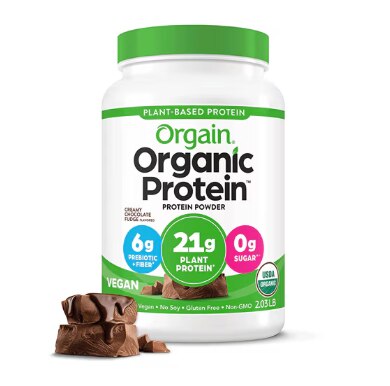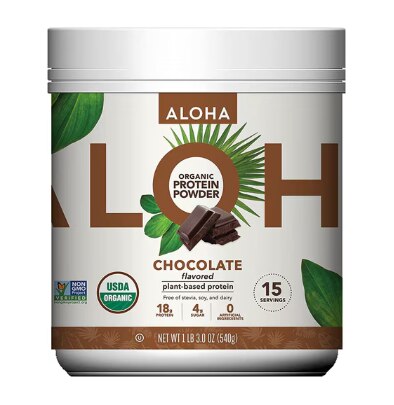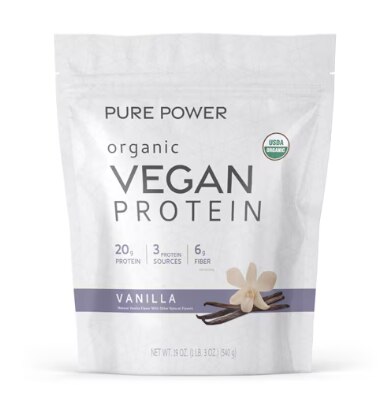Protein is currently having a moment with America’s teens.
Young people who hit the gym to bulk up their bodies are turning to protein powders in large — and potentially alarming — numbers.
About 40% of teens used some type of protein supplement over the course of the previous 12 months, according to a 2024 poll of parents by the Mott Children’s Hospital at the University of Michigan.
Is protein powder safe for teens?
Some experts are now questioning whether such widespread use of protein powder is wise. At excessive levels — more than 100 grams a day — protein can damage the kidneys and liver. In the short term, consuming large amounts of protein can also cause abdominal pain.
“Most adults and teens meet their protein needs and can build muscle without supplements,” says Caroline West Passerrello, a registered dietitian nutritionist and spokesperson for the Academy of Nutrition and Dietetics.
However, she says that when used as part of a balanced diet to supplement inadequate protein intake, “a regulated protein powder may be a viable option.”
Why is protein important?
Protein can help you build stronger muscle and bone, and it also keeps your skin, blood and cartilage healthy.
The molecule is known as the “building block of life,” and it can be found in every cell of the human body. Protein aids the body in both repairing old cells and creating new ones. It is also essential to the healthy development of both children and teens.
Your calorie needs help determine how much protein you should consume. Typically, it is recommended that adults use protein to account for between 10% and 35% of their total calorie needs, with 1 gram of protein supplying 4 calories to the body.
Most foods that are rich in protein contain about 7 grams of the molecule in 1 ounce of the food.
Teens and children may require different levels of protein. While amounts can vary from teen to teen, boys typically need about 52 grams of protein a day, while girls should aim for around 46 grams, according to experts at North Dakota State University.
Should you take protein powder supplements?
Protein supplements are derived from animal or plant-based sources, including cow’s milk, eggs, peas, rice and soy. In many cases, carbohydrates, fats, fiber and minerals are removed. Nutrients and flavors may be added to these products.
Passerrello and other experts say most people can get all the protein they need through their diet. The government’s recommended dietary allowance (RDA) for protein is 0.8 grams per kilogram. That means if you weigh 150 pounds, you should consume about 55 grams of protein each day.
Many Americans get at least that much protein in their diet, if not more. However, Passerrello says there may be times when people can benefit from taking protein supplements.
“If someone is struggling to meet their protein needs — either because of decreased intake or increased need — protein powders might be a good solution,” she says.
For example, if you are on the go and are short on time, a protein powder might make sense. Aging adults who want to maintain muscle mass also might benefit from using protein powder, Passerrello says.
Those who engage in heavy-duty strength training generally need to consume 1.5 to 2 grams of protein per kilogram of body weight, she says. They also might benefit from protein powder.
“Protein powders can be convenient to mix with water after a practice or a strength training session,” Passerrello says. “They can be useful if there are other restrictions in place, like after orthodontic work.”
The drawbacks of protein powder
Still, there can be drawbacks to using protein powder. “Protein powders aren’t usually necessary and can be an added expense and excess calories,” Passerrello says.
Teens and others face several other potential risks when using protein powder. They include:
- Imbalanced macronutrient mix. An overemphasis on protein can crowd out fat and carbohydrates — and therefore specific vitamins, minerals and fiber.
- Weight gain. Consuming a lot of protein without making changes to fat and carbohydrate intake can lead you to exceed your calorie needs, Passerrello says.
- Dehydration. Taking in large amounts of protein makes the kidneys work harder, which requires more water. That can result in fluid loss and dehydration. Passerrello says the risk of dehydration is higher during hot weather and intense practices or games
Because protein powder is a dietary supplement and not a food or medication, the U.S. Food and Drug Administration does not regulate it. This means the responsibility for ensuring the product is safe falls on the manufacturer.
Some protein powders have been found to contain heavy metals, chemicals and other contaminants.
“Since protein powders are supplements, they inherently carry risks if the supplement contents aren’t third-party verified,” Passerrello says.
Getting protein from food sources
Food remains the best source of protein for your body.
Meat, poultry and fish are excellent sources of protein. Of course, eating red meat poses other risks to your health. So, turkey, chicken and bison are often better choices than other types of meat.
Other sources of protein may include:
- Beans, including pinto, black, kidney and garbanzo beans
- Lentils and split peas
- Nuts and seeds
- Tofu, tempeh and other soy protein products
- Low-fat dairy products
There are many other simple ways to get more protein into your diet.
“If making a smoothie, you can add Greek yogurt, collage cheese, tofu or nonfat dry milk powder,” Passerrello says.
Passerrello offers the following examples of foods that pack a protein wallop:
- 3 ounces of cooked chicken breast: 26 grams
- 6 ounces of Greek yogurt: 15-18 grams
- 1 cup of beans or legumes: 14-15 grams
- 4 ounces of tofu: 10-12 grams
- 1 cup of milk: 8 grams
- 2 tablespoons of nut butters: 7-8 grams
- 1 large egg: 6 grams
Featured Products



The post The Rise of Protein Powder: Is it Safe for Teen Athletes? first appeared on The Upside by Vitacost.com.

